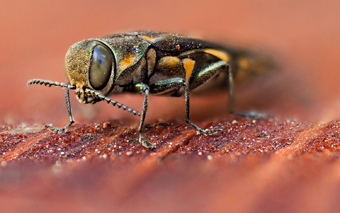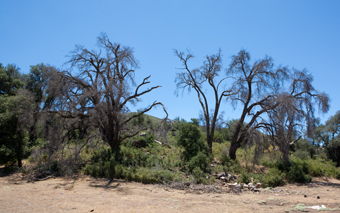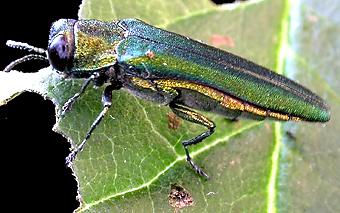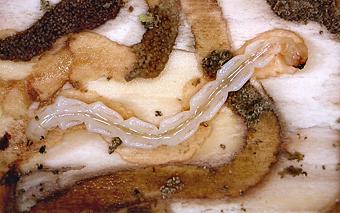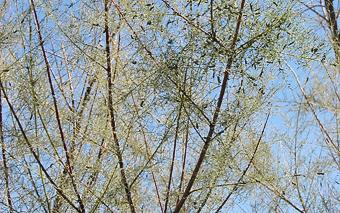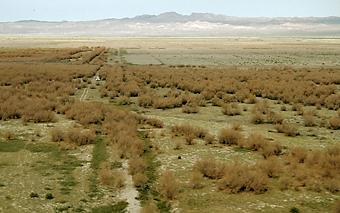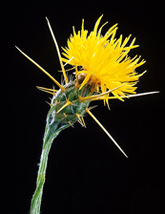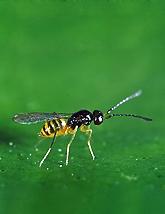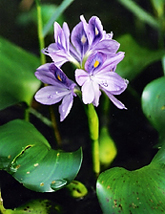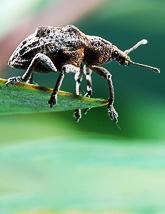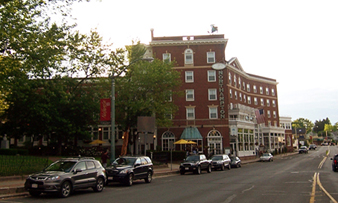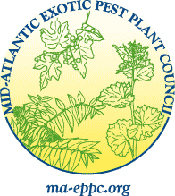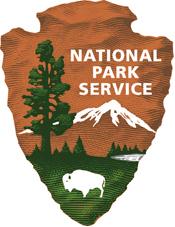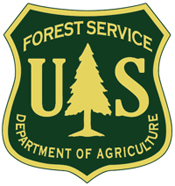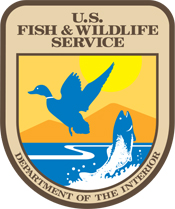"Exploring the benefits of classical biological control for forests, wetlands, grasslands, and deserts"
This website and associated content will explore the benefits of classical biological control for the control of invasive insects and plants in natural forests, and associated habitats such as wetlands, grasslands, and deserts. Applications to islands and other natural systems will also be included.
The primary focus of this website is to promote the use of classical biological as a tool for use in conservation and restoration oriented programs that are managing problems associated with the damage invasive species cause to wilderness lands and areas of high conservation value.
The content of this website will not address other forms of biological control (e.g., augmentation, conservation, biopesticides), nor will it address issues pertaining to the classical biological control of pests in plantation forestry. The topics of this website are directed at biological control scientists, conservationists, invasion biologists, and land managers.
The 2010 Biological Control for Nature Conference
Biological control of pests in forests and associated habitats
The Hotel Northampton, in Northampton, Massachusetts (USA), from October 3-7, 2010
"Exploring the benefits of classical biological control for forests, wetlands, grasslands, and deserts"
This meeting will explore the benefits of classical biological control for the control of invasive insects and plants in natural forests, and associated habitats such as wetlands, grasslands, and deserts. Applications to islands and other natural systems will also be included. The meeting will not address other forms of biological control (e.g., augmentation, conservation, biopesticides), nor will it address use of biological control in plantation forestry. The meeting will appeal to biological control scientists, conservationists, invasion biologists, and land managers.
The meeting is supported by the USDA Forest Service (Forest Health Technology Enterprise Team,), USDA, ARS, the National Park Service, the US Fish and Wildlife Service, and the mid Atlantic Exotic Pest Plant Council.
This meeting continues the series started with the 1st International Workshop on Biological Control of Invasive Species of Forests, held September 20-25, 2007 in Beijing. http://svinetfc2.fs.fed.us/biocontrol/
The Goldspotted Oak Borer has killed tens of thousands of native oak trees in Southern California. A classic biological control program is being carried out to protect California oak trees from this invasive pest:
Adult and larval Emerald Ash Borer. A pest killing millions of Ash trees in America - biocontrol being initiated:
Diorhabda beetles defoliating Saltcedar in South West United States. Biocontrol in progress:
Biological Control for Nature:
Biological control of pests in forests and associated habitats.
This meeting will explore the benefits of classical biological control for the control of invasive insects and weeds in natural forests, and associated habitats such as wetlands, grasslands, and deserts. Applications to islands and other natural systems will be included. The meeting will not address other forms of biological control (augmentation, conservation, biopesticides), nor will it address use of biological control in plantation forestry. The meeting will appeal to biological control scientists, conservationists, invasion biologists, and land managers.
The meeting is supported by the USDA Forest Service, USDA, ARS, the National Park Service, the US Fish and Wildlife Service, and the mid Atlantic Exotic Pest Plant Council.
This meeting continues the series started with the 1st International Meeting on Biological Control of Forests Pests, held in 2007 in Beijing.
Sponsors
This meeting is being sponsored by the following agencies and organizations: USDA Forest Service (Forest Health Technology Enterprise Team), USDA Agricultural Research Service, US Park Service, US Fisheries, Wildlife, and the mid- Atlantic Exotic Pest Plant Council and Northeastern Regional Association of State Agricultural Experiment Station Directors.


